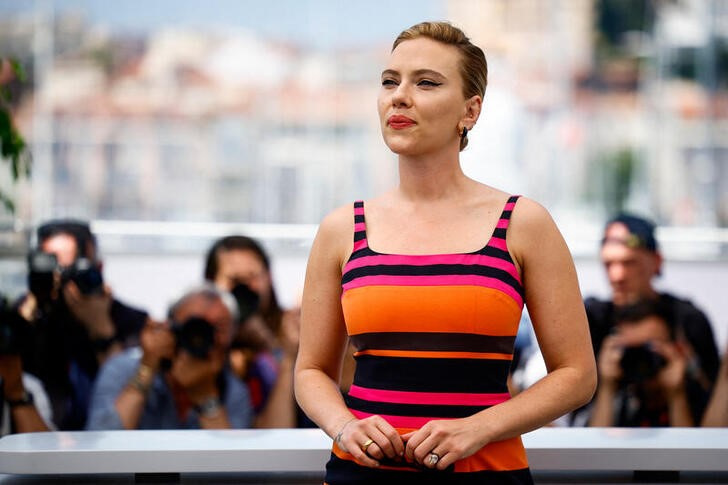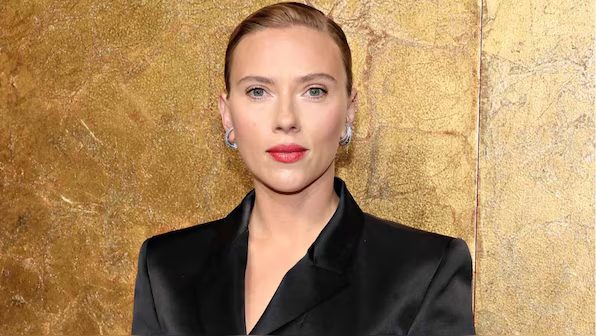May 23 (Reuters) – OpenAI’s apparent homage to the movie “Her” featuring the voice likeness of Scarlett Johansson is fueling a backlash against artificial intelligence across Hollywood, executives told Reuters.
Johansson’s accusation that the ChatGPT-maker copied her performance in the Spike Jonze-directed feature film, after failing to strike an agreement, rekindled the creative class’s anxiety about the existential threat posed by AI, even as Hollywood studios test new tools and mull alliances with OpenAI.
“This seemed to strike a real chord,” said one industry executive. “It kind of puts a human face on it … There’s a well-known tech company that did something to a person we know.”
OpenAI stunned the world in February with feature film-like quality videos generated by its text-to-video tool, Sora. Since then, Hollywood executives and agents have met the company multiple times to discuss potential creative partnerships and applications of the technology, according to agents and industry executives.
Johansson’s blasting of OpenAI for using a sultry voice she called “eerily similar” to her performance in its public demonstrations of the newest version of ChatGPT is antagonizing some entertainment executives, amid discussions to work more closely on projects, people with direct knowledge told Reuters.
“It sure doesn’t set up a respectful collaboration between content creators and tech giants,” said one studio executive, calling OpenAI’s actions “hubris.”
OpenAI CEO Sam Altman said in a statement Monday that the voice “is not Scarlett Johansson’s, and it was never intended to resemble hers. We cast the voice actor behind Sky’s voice before any outreach to Ms. Johansson.”
The company, whose largest investor is Microsoft (MSFT.O), did not reply to requests for comment on its relationship with Hollywood after the dispute.
Even before the latest conflict, agents and executives who spoke with Reuters on condition of anonymity have said for weeks they are concerned that OpenAI’s models appear to have been trained on copyrighted works, which the tech company deemed as a fair use because they are publicly available on the internet. That is seen as a major obstacle by some professional directors and filmmakers, who may be reluctant to use a tool built, without consent, on others’ work.

The 76th Cannes Film Festival – Photocall for the film “Asteroid City” in competition – Cannes, France, May 24, 2023. Cast member Scarlett Johansson poses. REUTERS/Sarah Meyssonnier Purchase Licensing Rights
But technologists in the entertainment industry view Sora as a promising potential tool to augment the film- and TV-making process. They see near-term applications for the technology to accelerate the pace of digital effects.
Fox already uses OpenAI’s ChatGPT to recommend new TV shows and movies for viewers of its Tubi streaming service.
Although OpenAI has said it aims to protect copyrights – blocking the ability to generate videos featuring known characters like Superman or prominent actors like Jennifer Aniston — there remain concerns about how it will safeguard lesser-known performers.
LOST VOICE
Johansson’s conflict with OpenAI opens a new front in the battle between the content industry and the AI leader. Johansson has grounds to argue OpenAI violated her right to publicity, which gives a person the right to control the commercial use of his or her name, image or likeness, according to John Yanchunis, a partner at law firm Morgan & Morgan.
Singer Bette Midler used California law to reclaim her own voice in a case legal scholars point to as establishing a precedent. She successfully sued Ford’s (F.N), opens new tab advertising agency, Young & Rubicam, for hiring a former backup singer to imitate her rendition of “Do You Want to Dance?” in a car commercial after she rejected an offer to perform the song. The case, filed in 1987, rose to the Supreme Court, which upheld her right of publicity. Tom Waits won a similar suit in 1988 against Frito-Lay for a commercial featuring a performance imitating Waits’ gravelly singing style.
“In both of those cases, the sound-alikes were performing songs that the singers had made famous, so people were likely to assume that the artists were the ones singing and had endorsed the products,” said Mark Lemley, director of Stanford Program in Law, Science and Technology.
The Johansson case is less clear-cut than the earlier cases, though the effort to imitate Johansson’s voice from “Her,” together with Altman’s repeated efforts to hire her and a tweet by him referencing the film, make for “a pretty strong case for Johansson,” said Lemley.
Jeffrey Bennett, general counsel for the SAG-AFTRA performers union, which was instrumental in establishing the right of publicity in California and elsewhere around the country, has been pressing for a federal right for voice and likeness similar to the federal protections for a copyright.
“We’re thrilled that there’s now this huge dialogue about it,” Bennett said. “We’ve been trying to use the bullhorn and shout about it for quite awhile now … We’ve been talking about the proliferation of ‘deep fakes’ and now it’s going to start impacting everybody. Now, it really is a conversation. There must be a federal solution.”


